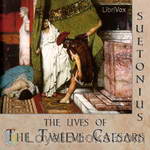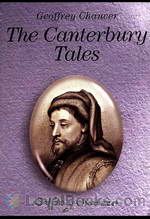|
Books Should Be Free Loyal Books Free Public Domain Audiobooks & eBook Downloads |
|
|
Books Should Be Free Loyal Books Free Public Domain Audiobooks & eBook Downloads |
|
Biographies |
|---|
|
Book type:
Sort by:
View by:
|
By: Frank Puterbaugh Bachman (1871-1934) | |
|---|---|
 Great Inventors and Their Inventions
Great Inventors and Their Inventions
This book is about Great inventors and what they created. It has different stories like Alexander Bell, Wrights, Morse, Gutenberg, and Edison. ON August 17, 1807, a curious crowd of people in New York gathered at a boat landing. Tied to the dock was a strange-looking craft. A smokestack rose above the deck. From the sides of the boat, there stood out queer shaped paddle wheels. Of a sudden, the clouds of smoke from the smokestack grew larger, the paddle wheels turned, and the boat, to the astonishment of all, moved... | |
By: Frank W. Boreham (1871-1959) | |
|---|---|
 Handful of Stars
Handful of Stars
This is the second of a five volume series called "Texts That Made History". As with the first volume, "A Bunch of Everlastings", each chapter tell a brief biography with emphasis on the text from scripture that was significant in the life of each. It is biography and Bible study expertly woven together to produce interesting and inspirational stories. | |
 Bunch of Everlastings
Bunch of Everlastings
A collection of brief biographies and the text from scripture that was significant in the life of each. It is biography and devotional Bible study expertly woven together to produce interesting and inspirational stories. | |
By: Franklin Benjamin Sanborn (1831-1917) | |
|---|---|
 Henry D. Thoreau
Henry D. Thoreau
A biography of the famous and popular poet-naturalist, author, philosopher, historian, written by a family friend who spent time with Thoreau almost daily during the last seven years of his life and who knew and talked with members of his family. Written shortly after his death, it was immediately popular and this later edition gained a new audience. | |
By: Franz Hoffmann (1814-1882) | |
|---|---|
 Mozart's Youth
Mozart's Youth
This short account of the young Wolfgang Amadeus Mozart is part of the “Life Stories for Young People” series. It is written in an engaging dialogue format beginning with the young Mozart’s first notes on the piano keyboard at age three to his admission to membership in the Accademia Filarmonica at Bologna, Italy, ten years later. This child prodigy astounded the musical world of Europe to become one of the most cherished of all classical composers. | |
By: Franz Blei (1871-1942) | |
|---|---|
 Recollections of Oscar Wilde
Recollections of Oscar Wilde
This 1906 collection of memories of Oscar Wilde is by friends. Wilde said that his genius was his life; only his talent was in his works. | |
By: Fred Kelly (1882-1959) | |
|---|---|
 Wright Brothers
Wright Brothers
This is a biography of the Wright Brothers as told by the American humorist and newspaperman Fred Kelly, a personal friend of the Wrights. It is described in reviews as "fascinating and highly readable." - Summary by Ciufi Galeazzi | |
By: Frederick Adams Woods (1873-1939) | |
|---|---|
 Mental and Moral Heredity in Royalty. A Statistical Study in History and Psychology
Mental and Moral Heredity in Royalty. A Statistical Study in History and Psychology
Frederick Adams Woods examined the biographical records and family trees of the great dynasties of Europe, judging and comparing their moral standards and intellectual aptitude to their reputation as rulers. The summarised family histories are produced after a painstaking search including portrait galleries, family lineage, comparisons of reputation, and the origin of allegations of madness and moral bankruptcy, all collated within a single volume. - Summary by Leon Harvey | |
By: Frederick Bridge (1844-1924) | |
|---|---|
 Twelve Good Musicians: From John Bull to Henry Purcell
Twelve Good Musicians: From John Bull to Henry Purcell
Brief sketches of the lives and music of 12 well-known musicians. - Summary by KevinS | |
By: Frederick Douglass (1818-1895) | |
|---|---|
 Narrative of the Life of Frederick Douglass
Narrative of the Life of Frederick Douglass
Frederick Douglass was born into slavery on a Maryland plantation. He faced hardship as a child, but later encountered owners who were relatively liberal and allowed him to learn to read, write and be in contact with freed slaves. At the age of 20, he escaped from the plantation and made his way to New York. Though he remained a fugitive, he married and changed his name to avoid being caught. He continued his education and became involved in the Abolitionist Movement. He began touring the country, speaking passionately about the unjust, cruel and inhuman practice of slavery... | |
By: Frederick James Furnivall (1825-1910) | |
|---|---|
 Shakespeare: Life and Work
Shakespeare: Life and Work
William Shakespeare: actor, poet, playwright. He is often called England's greatest writer, the Bard of Avon, a national treasure. But who was he? An average boy, born to an average family of the period; a romantic and dreamer, tempted away from his rural home by the sights and sounds of the big city. To commemorate the 400th anniversary of William Shakespeare's death, here is one of the many studies of the bard's life and works. | |
By: Frederick L. (Frederick Lyman) Hitchcock | |
|---|---|
 War from the Inside The Story of the 132nd Regiment Pennsylvania Volunteer Infantry in the War for the Suppression of the Rebellion, 1862-1863
War from the Inside The Story of the 132nd Regiment Pennsylvania Volunteer Infantry in the War for the Suppression of the Rebellion, 1862-1863
| |
By: Frederick Niecks (1845-1924) | |
|---|---|
 Frederick Chopin, as a Man and Musician
Frederick Chopin, as a Man and Musician
| |
By: Frederick Sleigh Roberts Roberts (1832-1914) | |
|---|---|
 Forty-one years in India From Subaltern To Commander-In-Chief
Forty-one years in India From Subaltern To Commander-In-Chief
| |
By: Frederick Trevor Hill (1866-1930) | |
|---|---|
 Lincoln, The Lawyer
Lincoln, The Lawyer
This biography of Abraham Lincoln focuses on his practice as a lawyer. | |
By: Frederick Wedmore (1844-1921) | |
|---|---|
 Four Masters of Etching
Four Masters of Etching
Frederick Wedmore presents short vignettes of influential artists of the 19th century who were noted for their mastery of etching: Seymour Haden, Jules Jacquemart, J. A. M. Whistler, and Alphonse Legros. - Summary by Larry Wilson | |
By: Frederick Winthrop Hutchinson | |
|---|---|
 Men Who Found America
Men Who Found America
This Book is about the Men Who Found America and how it started - Summary by Elijah | |
By: Frederika Richardson Macdonald | |
|---|---|
 Secret of Charlotte Brontë
Secret of Charlotte Brontë
Twenty years ago, now, I attempted (but was not especially successful in the task) to establish upon the personal knowledge that my own residence as a pupil in the historical Pensionnat in the Rue d'Isabelle, at Bruxelles gave me of the facts of Charlotte Brontë's relationships to Monsieur and Madame Heger, right impressions about the experiences and emotions she underwent between 1842 and 1846, and that supply the key and clue to the right interpretation of her genius. Every opinion I then ventured... | |
By: Friedrich Nietzsche (1844-1900) | |
|---|---|
 Case of Wagner / Nietzsche Contra Wagner / Selected Aphorisms
Case of Wagner / Nietzsche Contra Wagner / Selected Aphorisms
A collection of three of Nietzsche's writings concerning the music of Wagner. In particular, he relates Wagner's music as degenerate, unrefined and unintelligent and relates it to a gradually degenerating German culture and society. The translator provides a detailed introduction. | |
By: Friedrich Trenck (1726-1794) | |
|---|---|
 The Life and Adventures of Baron Trenck, Volume 1
The Life and Adventures of Baron Trenck, Volume 1
| |
 The Life and Adventures of Baron Trenck, Volume 2
The Life and Adventures of Baron Trenck, Volume 2
| |
By: G. F. Young (1846-1919) | |
|---|---|
 Medici, Volume 1
Medici, Volume 1
This work relates the history of the Medici family through three centuries and eleven generations, from its rise from obscurity, to its zenith of power and influence, to its eventual decay and ruin. It outlines their history in conjunction with the major events of Europe and dwells much on the artists and artworks patronized by the Medici - the impetus of the Renaissance. This first volume brings to life the Renaissance and how Florence, through the Medici, was the epicentre of the movement that spread new learning throughout Europe... | |
 Medici, Volume 2
Medici, Volume 2
This work relates the history of the Medici family through three centuries and eleven generations, from its rise from obscurity, to its zenith of power and influence, to its eventual decay and ruin. It outlines their history in conjunction with the major events of Europe and dwells much on the artists and artworks patronized by the Medici - the impetus of the Renaissance. This second volume begins in 1537 and highlights Catherine, the last of the elder branch, then follows the younger branch to the eventual extinction of the family in 1743. - Summary by TriciaG | |
By: G. Holden (Godfrey Holden) Pike (1836-) | |
|---|---|
 From Slave to College President Being the Life Story of Booker T. Washington
From Slave to College President Being the Life Story of Booker T. Washington
| |
By: G. K. Chesterton (1874-1936) | |
|---|---|
 Charles Dickens
Charles Dickens
G. K. Chesterton was a great admirer of Charles Dickens, and wrote a noted critique of Dickens’ works expressing his opinion in his own inimitable style. | |
 George Bernard Shaw
George Bernard Shaw
Chesterton and Shaw were famous friends and enjoyed their arguments and discussions. Although rarely in agreement, they both maintained good-will towards and respect for each other. However, in his writing, Chesterton expressed himself very plainly on where they differed and why. In Heretics he writes of Shaw: “After belabouring a great many people for a great many years for being unprogressive, Mr. Shaw has discovered, with characteristic sense, that it is very doubtful whether any existing human being with two legs can be progressive at all... | |
 St. Francis of Assisi
St. Francis of Assisi
For Chesterton, Francis of Assisi is a great paradoxical figure, a man who loved women but vowed himself to chastity; an artist who loved the pleasures of the natural world as few have loved them, but vowed himself to the most austere poverty, stripping himself naked in the public square so all could see that he had renounced his worldly goods; a clown who stood on his head in order to see the world aright. Chesterton gives us Francis in his world-the riotously colorful world of the High Middle Ages, a world with more pageantry and romance than we have seen before or since... | |
 Twelve Types
Twelve Types
Short biographical essays of twelve persons central to European culture. - Summary by KevinS | |
 St. Francis of Assisi (Version 2)
St. Francis of Assisi (Version 2)
Saint Francis of Assisi grew up in a wealthy family and his early life was characterized by splendor, riches and a lavish lifestyle. During an illness, he supposedly had a vision, after which he became disillusioned with his lifestyle and began giving everything away to beggars. His conversion was gradual, but after a pilgrimage to Rome, he supposedly hid in a cave to avoid his father's anger and then began to live a life of poverty and contrition. He is forever associated with simplicity and nature. - Summary by Lynne Thompson | |
By: Gaius Suetonius Tranquillus (c75 - c160 AD) | |
|---|---|
 The Lives of the Twelve Caesars
The Lives of the Twelve Caesars
The Twelve Caesars is a set of twelve biographies of Julius Caesar and the first 11 emperors of the Roman Empire. The work was written in 121 during the reign of the emperor Hadrian, while Suetonius was Hadrian’s personal secretary. On the Life of the Caesars concentrates on the acts and personalities of the Julio-Claudians and their immediate successors. Together with Tacitus’ Annals, this work is a major source for the historical details in Robert Graves’ novels “I Claudius” and “Claudius the God”. | |
By: Geoffrey Chaucer (c. 1343-1400) | |
|---|---|
 The Canterbury Tales
The Canterbury Tales
Anyone who has ever been on a package tour with a group of strangers who soon become friends, and passed time swapping stories with them, would instantly identify with this timeless classic of English literature. The Canterbury Tales by Geoffrey Chaucer recounts twenty different stories recounted by a diverse group of pilgrims who gather at The Tabard Inn in Southwark, near London, before setting out for the shrine of Thomas Becket in Canterbury. The Host of the inn proposes that they entertain themselves by telling stories along the route and the one who tells the best tale would win a prize – a meal at Bailey's tavern, sponsored by the losers... | |
By: Georg Morris Cohen Brandes (1842-1927) | |
|---|---|
 Recollections of My Childhood and Youth
Recollections of My Childhood and Youth
| |